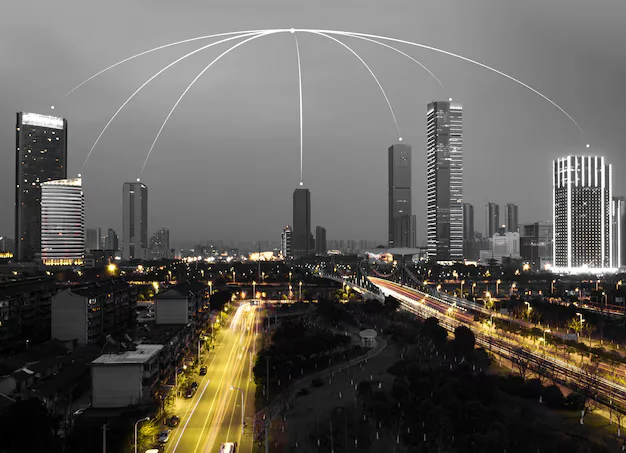Technological advancements and urbanization trends are transforming cities into highly efficient, data-driven environments. Smart cities leverage cutting-edge technologies such as artificial intelligence (AI), the Internet of Things (IoT), and sustainable infrastructure to enhance urban living. These developments not only improve daily life for residents but also reshape real estate markets, creating new opportunities for investors, developers, and homebuyers. For those considering a house for sale in Brooklin Whitby, understanding how smart city innovations influence real estate can help in making informed investment decisions that align with future urban trends.
What Are Smart Cities?
Smart cities integrate digital technology and sustainable planning to improve efficiency, reduce environmental impact, and enhance the quality of life for residents. Key features of smart cities include smart infrastructure, renewable energy solutions, efficient public transportation, and real-time data collection to optimize city functions. By leveraging technology, these cities create an environment that promotes economic growth, sustainability, and overall urban well-being.
In addition to technological advancements, smart cities emphasize citizen engagement and participatory governance, allowing residents to have a say in urban planning and community development. The focus on sustainable living ensures that environmental concerns, such as carbon emissions and energy consumption, are effectively managed to create eco-friendly urban centers.
How Smart Cities Are Changing Real Estate Development
The shift towards smart urban planning is redefining real estate in several ways. Homebuyers are increasingly seeking properties equipped with smart home features such as automated lighting, energy-efficient appliances, and security systems integrated with AI. Mixed-use developments are also on the rise, blending residential, commercial, and recreational spaces to create self-sustaining communities. Additionally, properties located near smart transportation hubs, such as electric vehicle charging stations and autonomous public transit, are becoming prime investment opportunities. Developers are also required to comply with green building standards and energy-efficient designs to meet the sustainability criteria of smart cities.
The real estate sector is also seeing an increase in prefabricated and modular homes, which can be integrated seamlessly into smart city environments. These homes reduce construction waste, lower costs, and improve efficiency. Eco-districts—neighborhoods designed around renewable energy use, low carbon emissions, and optimized waste management—are also emerging, further enhancing the appeal of real estate in smart cities.
Benefits of Investing in Smart City Real Estate
Investing in real estate within smart cities offers significant advantages. Properties in these cities tend to have higher property values due to increased demand, leading to greater appreciation over time. Additionally, smart infrastructure enhances the quality of life for residents by providing enhanced security, better air quality, and optimized energy use.
Homebuyers also benefit from energy efficiency, as smart homes equipped with IoT devices can significantly reduce electricity and water consumption, leading to lower utility bills. Smart grids allow households to monitor energy use in real time, optimizing consumption and reducing waste. Another key advantage is the strong sense of community, as digital platforms and smart applications allow residents to participate in governance, access real-time city updates, and connect with local services.
In commercial real estate, businesses operating in smart cities experience improved efficiency through automated building management systems, which help reduce maintenance costs and enhance workplace productivity. Retail spaces can integrate AI-powered analytics to understand customer behavior better, allowing for optimized business operations.
Challenges and Considerations for Buyers
Despite the many advantages, buyers must also consider some challenges when investing in smart city properties. The initial cost of purchasing a smart home is often higher due to the incorporation of advanced technology and sustainable materials. However, these costs are usually offset by long-term energy savings and property appreciation.
Additionally, local governments continuously update zoning laws and building codes to accommodate smart city growth, which may impact future developments. Buyers should stay informed about municipal regulations to ensure compliance with evolving urban policies.
Another major consideration is data privacy. The increased use of sensors, cameras, and AI systems raises concerns about data security, making it essential for residents to understand how their data is being collected and used. Moreover, the maintenance of smart city infrastructure requires ongoing investment, which could result in additional fees for homeowners. Buyers should carefully assess these factors before making a purchase decision.
Future Trends in Smart Cities and Real Estate
As smart city initiatives continue to expand worldwide, several emerging trends are expected to shape the future of real estate. AI-powered real estate analytics will enable buyers and investors to make more informed, data-driven decisions. Sustainable housing developments, including net-zero energy homes and carbon-neutral buildings, will become the norm in smart cities.
Blockchain technology is also expected to play a significant role in real estate transactions, ensuring secure, transparent, and efficient property transfers. Additionally, smart mobility solutions such as self-driving cars, electric public transit, and integrated mobility services will influence residential location preferences.
The rise of co-living and co-working spaces will further redefine urban living. As remote work becomes more prevalent, smart cities will need to accommodate flexible living arrangements and shared spaces that integrate high-speed connectivity, smart security, and modular office designs.
Final Thoughts
Smart cities are shaping the future of real estate by integrating technology, sustainability, and efficiency into urban development. Homebuyers and investors who adapt to these changes can benefit from increased property values, enhanced quality of life, and long-term sustainability.
Understanding how smart cities operate and influence the real estate market will be essential for buyers looking to secure future-proof investments. By focusing on sustainable development, technological innovation, and enhanced connectivity, smart cities will continue to offer attractive real estate opportunities for years to come.







